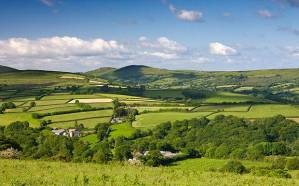When reflecting on my last post, how can we make climate change interesting, I realised I was speaking from the perspective of someone who in fact does find it interesting, and was lamenting the fact that others did not.
I think a big part of that interest has come from the books we have studied on this course. Yet each book has taken such a different approach to nature and the environment that is seems this conglomeration of different voices shold only have added to my confusion. Instead I have reached a kind of mental clarity.
This weeks lecture from Terry Gifford explored different types of pastoral writing including:
– Pastoral
– Anti Pastoral
– Post Pastoral
The texts we have studied on this course have all incorporated elements of these. Some parts of The Living Mountain by Nan Shepherd paint an idealistic view on the Cairngorms in Scotland and I think it could be argued Ruth Ozeki’s depiction of nature in All Over Creation is overly idealistic, though this is parodied somewhat with the characters of the hippies, so this could be a post-pastoral text, or even anti-pastoral.
The point is though, I don’t believe that one particular pastoral approach to writing is sufficient for us to understand nature and why we should protect it. The pastoral shows us what we would miss if it were gone. Yet the pessimistic tones of books such as Atwood’s Oryx and Crake remind us that action is needed. Even books like State of Fear serve somewhat of a purpose, showing us the ignorance and opposition that is still needed to overcome.
To go back to my previous posts again, I discussed some attempts at climate change propaganda that still does not have the weight it needs to influence society into action. As proved with me a s a case study, literature can do this, just as it has the power to change many other things.
This is one thing that not just this module, but my entire study of English literature has taught me, and it’s this power that needs to be tapped into before we can move forward as a society in the climate change battle.






